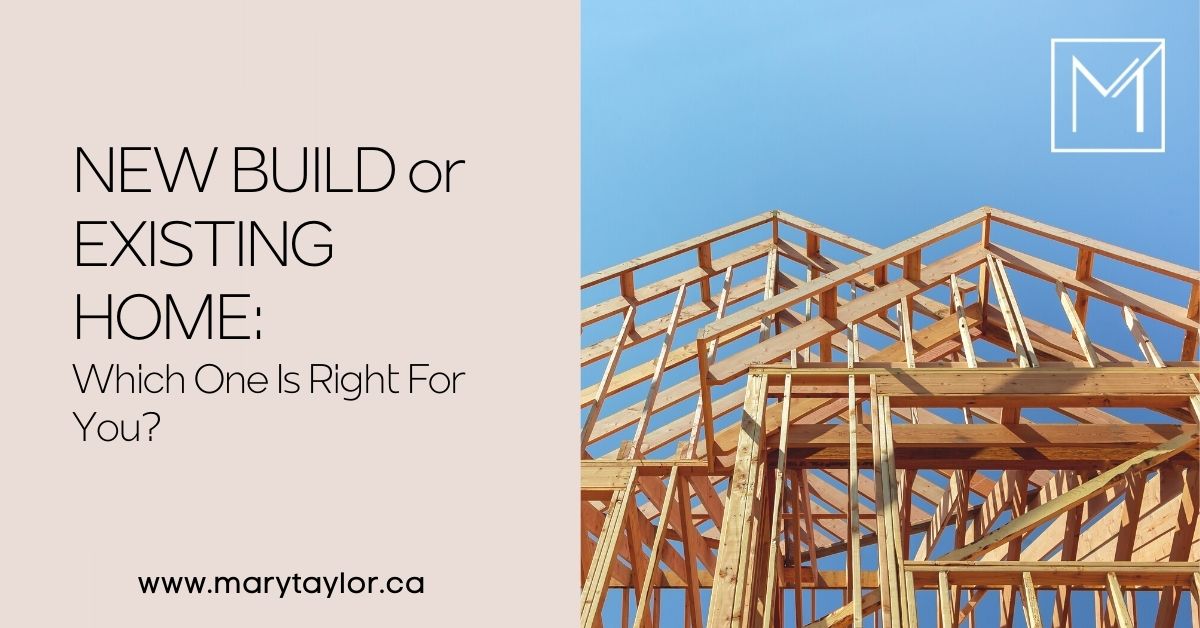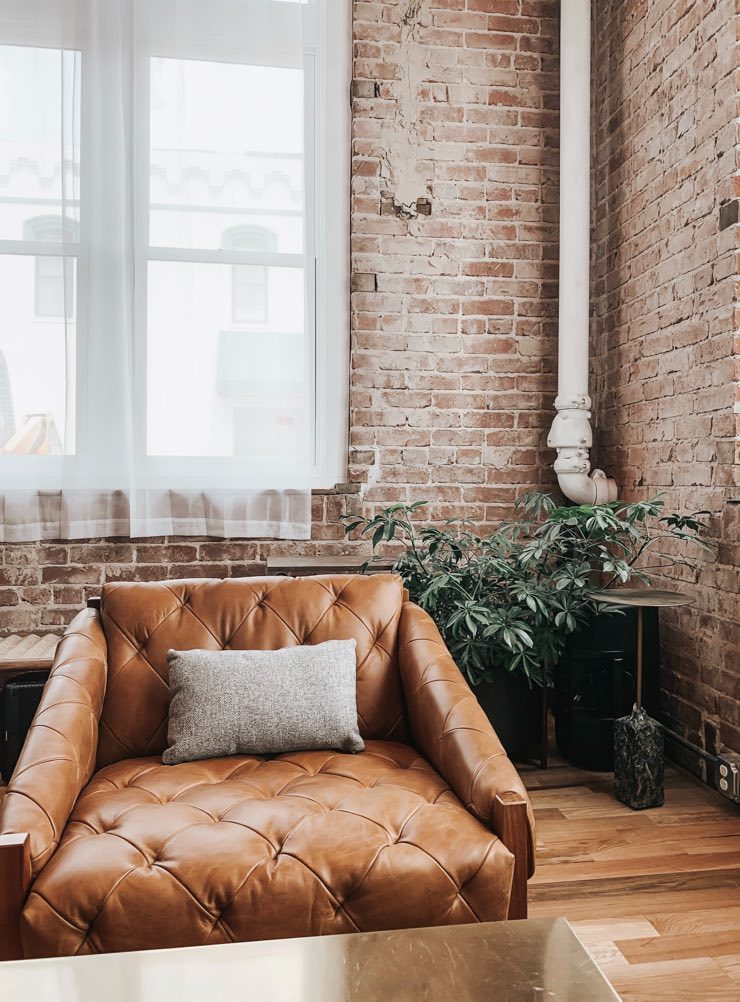Selling your home when you still need to shop for a new one can feel daunting to even the most seasoned homeowner––especially when the demand for new homes keeps rising, but the supply feels like it’s dwindling.¹ You’re not alone if you are feeling drained by the complex logistics of trying to sell and buy a new home all at once.
Searching for a new home can be exciting, but many homebuyers admit that it can also be stressful, especially if you live in an unpredictable market with plenty of competitors. Unfortunately, waiting out a competitive housing market isn’t always the best idea either since homes are in notoriously short supply across Canada, and listings are expected to remain limited in the most coveted neighbourhoods for some time.²
That doesn’t mean, though, that you should just throw up your hands and give up on moving altogether. In fact, as a current homeowner, you could be in a better position than most to capitalize on a seller’s market and make a smooth transition from your old home to a new one.
We can help you prepare for the road ahead and answer any questions you have about the real estate market. For example, here are some of the most frequent concerns we hear from clients who are trying to buy and sell at the same time.
“WHAT WILL I DO IF I SELL MY HOUSE BEFORE I CAN BUY A NEW ONE?”
This is an understandable concern for many sellers since the competitive real estate market makes it tough to plan ahead and predict when you’ll be able to move into your next home. But chances are, you will still have plenty of options if you do sell your home quickly. It may just take some creativity and compromise.
Here are some ideas to make sure you’re in the best possible position when you decide to list your home:
Tip #1: Flex your muscles as a seller.
In a competitive market, buyers may be willing to make significant concessions in order to get the home they want. In some cases, a buyer may agree to a sell and lease back agreement (also known as a “sell house and rent back” option) that allows the seller to continue living in the home after closing for a set period of time and negotiated fee.
This can be a great option for sellers who need to tap into their home equity for a down payment or who aren’t logistically ready to move into their next home. If you’re dealing with an investor rather than a traditional buyer, you may even be able to negotiate a lengthy lease and lower rent payment than your current mortgage.³
However, leaseback agreements can be complex, with important legal, financial and tax issues to consider.⁴ At minimum, a carefully-worded contract and security deposit should be in place in case of any property damage or unexpected repairs that may be needed during the leaseback period.
Tip #2: Open your mind to short-term housing options.
While it can be a hassle to move out of your old home before you’re ready to move into your new one, it’s a common scenario. If you’re lucky enough to have family or generous friends who offer to take you in, that may be ideal. If not, you’ll need to find temporary housing. Check out furnished apartments, vacation rentals and month-to-month leases. If space is an issue, consider putting some of your furniture and possessions in storage.
You may even find that a short-term rental arrangement can offer you an opportunity to get to know your new neighbourhood better—and lead to a more informed decision about your upcoming purchase.
Tip #3: Embrace the idea of selling now and buying later.
Instead of stressing about timing your home sale and purchase perfectly, consider making a plan to focus on one at a time. Selling before you’re ready to buy your next home can offer a lot of advantages.
For one, you’ll have cash on hand from the sale of your current home. This will put you in a much better position when it comes to buying your next home. From budgeting to mortgage approval to submitting a competitive offer, cash is king. And by focusing on one step at a time, you can alleviate some of the pressure and uncertainty.
“WHAT IF I GET STUCK WITH TWO MORTGAGES AT THE SAME TIME?”
This is one of the most common concerns that we hear from buyers who are selling a home while shopping for a new one, and it’s realistic to expect at least some overlap in mortgage payments. But unless you have a large enough income to comfortably carry two mortgages, you may not pass Canada’s beefed up mortgage stress test until you have a contract on your first home. (You can use the Financial Consumer Agency of Canada’s Mortgage Qualifier Tool to check your odds.⁵)
Assuming you can secure financing, it’s still a good idea to examine your budget and calculate the maximum number of months you can afford to pay two mortgages before you jump on a new home. Potential stopgap solutions, such as bridge financing, can also help tide you over if you qualify.
If you simply can’t afford to carry both mortgages for any amount of time, or if you are concerned about passing the mortgage stress test, then selling before you buy may be your best option. (See Tip #3 above.) But if you have some flexibility in your budget, it is possible to manage both a home sale and purchase simultaneously. Here are some steps you can take to help streamline the process:
Tip #4: As you get ready to sell, simplify.
You can condense your sales timeline if you only focus on the home renovations and tasks that matter most for selling your home quickly. For example, clean and declutter all of your common areas, refresh your outdoor paint and curb appeal and fix any outstanding maintenance issues as quickly as possible.
But don’t drain unnecessary time and money into pricey renovations and major home projects that could quickly bog you down for an unpredictable amount of time. We can advise you on the repairs and upgrades that are worth your time and investment.
Tip #5: Prep your paperwork.
You’ll also save valuable time by filing as much paperwork as possible early in the process. For example, if you know you’ll need a mortgage to buy your next home, get pre-approved right away so that you can shorten the amount of time it takes to process your loan.⁶
Similarly, set your home sale up for a fast and smooth transition by pulling together any relevant documentation about your current home, including appliance warranties, renovation permits, and repair records. That way, you’re ready to provide quick answers to buyers’ questions should they arise.
Tip #6: Ask us about other conditions that can be included in your contracts.
Part of our job as agents is to negotiate on your behalf and help you win favourable terms. For example, it’s possible to add a contract condition known as a “subject to sale” or “sale of property” (SOP) condition to your purchase offer that lets you cancel the contract if you haven’t sold your previous home.⁷ This tactic could backfire, though, if you’re competing with other buyers. We can discuss the pros and cons of these types of tactics and what’s realistic given the current market dynamics.
“WHAT IF I MESS UP MY TIMING OR BURN OUT FROM ALL THE STRESS?”
When you’re in the pressure cooker of a home sale or have been shopping for a home for a while in a competitive market, it’s easy to get carried away by stress and emotions. To make sure you’re in the right headspace for your homebuying and selling journey, take the time to slow down, breathe and delegate as much as possible.
Tip #7: Relax and accept that compromise is inevitable.
Rather than worry about getting every detail right with your housing search and home sale, trust that things will work out eventually––even if it doesn’t look like your Plan A or even your Plan B or Plan C. Perfecting every detail with your home decor or timing your home sale perfectly isn’t necessary for a successful home sale and compromise will almost always be necessary. Luckily, if you’ve got a good team of professionals, you can relax knowing that others have your back and are monitoring the details behind the scenes.
Tip #8: Don’t worry too much if your path is straying from convention.
Remember that rules-of-thumb and home-buying trends are just that: they are estimates, not facts. So if your home search or sale isn’t going exactly like your neighbours’ experience, it doesn’t mean that you are doomed to fail.
It’s possible, for example, that seasonality trends may affect sales in your neighbourhood. So a delayed sale in the summer or fall could affect your journey––but not necessarily. According to the Canadian Real Estate Association, the housing market used to be more competitive during the fall and spring and less competitive during the winter. But it’s not a hard and fast rule and real estate markets across Canada have seen major shifts in recent years.⁸ Every real estate transaction is different. That’s why it’s important to talk to a local agent about your specific situation.
Tip #9: Enlist help early.
If possible, call us early in the process. We’ll not only provide you with key guidance on what you should do ahead of time to prepare your current home for sale, we’ll also help you narrow down your list of must-haves and wants for your next one. That way, you’ll be prepared to act quickly and confidently when you spot a great house and are ready to make an offer.
It’s our job to guide you and advocate on your behalf. So don’t be afraid to lean on us throughout the process. We’re here to ease your burden and make your move as seamless and stress-free as possible.
BOTTOMLINE: COLLABORATE WITH A REAL ESTATE PROFESSIONAL TO GET TAILORED ADVICE THAT WORKS FOR YOU
Buying and selling a home at the same time is challenging. But it doesn’t have to be a nightmare, and it can even be fun. The key is to educate yourself about the market and prepare yourself for multiple scenarios. One of the best and easiest ways to do so is to partner with a knowledgeable and trustworthy agent.
A good agent will not only help you evaluate your situation, we will also provide you with honest and individually tailored advice that addresses your unique needs and challenges. Depending on your circumstances, now may be a great time to sell your home and buy a new one. But a thorough assessment may instead show you that you’re better off pausing your search for a while longer.
Contact us for a free consultation so that we can help you review your options and decide the best way forward.
Sources:
- Canadian Real Estate Association (CREA) National Statistics –
https://creastats.crea.ca/en-CA/ - Scotiabank Global Economics Housing Note – https://www.scotiabank.com/ca/en/about/economics/economics-publications/post.other-publications.housing.housing-note.housing-note–may-12-2021-.html
- CBC News –
https://www.cbc.ca/news/canada/toronto/housing-real-estate-toronto-market-sell-stay-rent-1.4075093 - Appraisal Institute of Canada – https://www.aicanada.ca/article/possible-valuation-issues-with-life-lease-housing/
- Financial Consumer Agency of Canada –
https://itools-ioutils.fcac-acfc.gc.ca/MQ-HQ/MQ-EAPH-eng.aspx - Government of Canada – https://www.canada.ca/en/financial-consumer-agency/services/mortgages/preapproval-qualify-mortgage.htm
- RBC Bank – https://www.rbcroyalbank.com/mortgages/selling-buying-home.html
- Canadian Real Estate Association – https://www.realtor.ca/blog/are-spring-and-fall-housing-markets-a-thing-of-the-past/20405/1361












